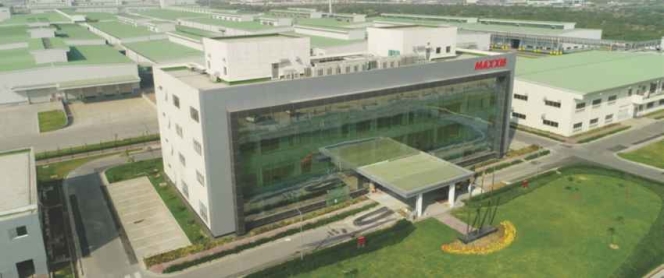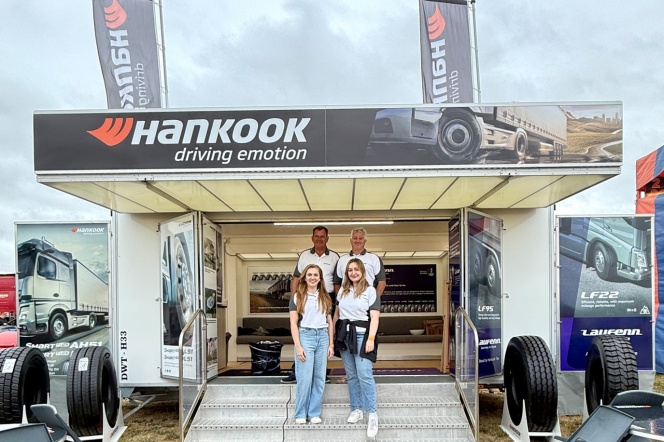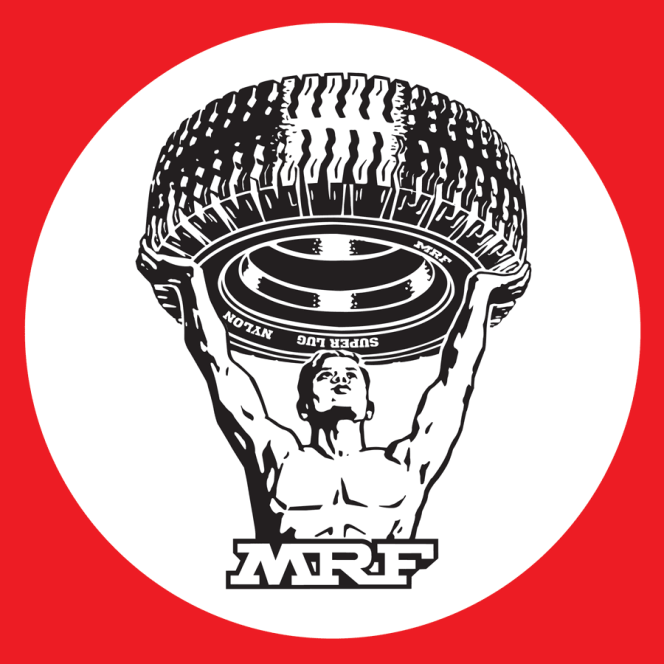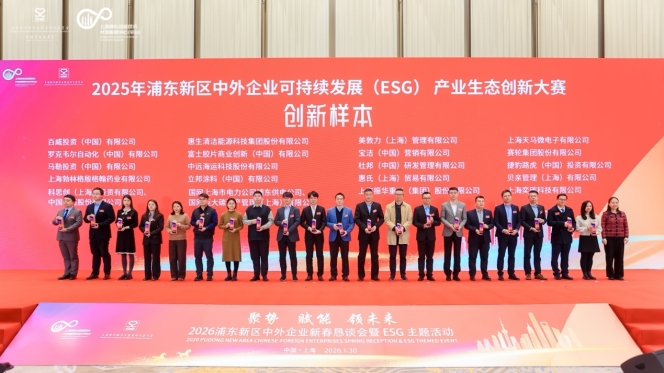
What is your take on the two-wheeler tyre market in India, considering the current situation?
India is facing the heat of the most unprecedented crisis with the second wave of the COVID-19 pandemic. The automobile industry is witnessing a slump, resulting in a slowdown in the two-wheeler tyre market in India. However, the two wheeler demand in India remains strong in the long term, and we believe the current harsh time will pass soon. We are certain that once the lockdowns are lifted, two-wheelers could become the preferred mode of transportation for many, certainly which will be a boom for the two-wheeler tyre market.
 Tyre companies are facing challenges on the manufacturing front due to restrictions being infused by the pandemic situation. How has the company aligned its manufacturing activities to the current situation and is taking care of its employees?
Tyre companies are facing challenges on the manufacturing front due to restrictions being infused by the pandemic situation. How has the company aligned its manufacturing activities to the current situation and is taking care of its employees?
At Maxxis, the employee’s safety has been prioritised over business targets. There was a shutdown for a brief period. To ensure workforce well-being, we have been strictly conducting employee Health check-ups, including RT-PCR tests and compulsory vaccinations for all the staff. Also, we have always been following all government protocols of social distancing, limited workforce, operating in shifts and other safety measures for our employees.
The manufacturing unit operates under the guidelines drawn by the Ministry of Home Affairs and Gujarat State Government. Currently, employees are working in shifts with full capacity workforce. We intend to augment production as per market demand and the lockdown situation in the country.
Management is also proactively sharing e-mailers with employees, channel partners on safety measures and positive quotes to spread the positive environment.
Could you highlight the role of digitisation of Maxxis India’s plant in Gujarat and how is it helping in today’s time?
Maxxis lays excellent emphasis on digitisation. It gives us greater control and visibility into each step of the complex manufacturing process, reducing cost and waste and improving overall efficiency.
How does the company see Industry 4.0?
Industry 4.0 will be the key game changer for the Indian manufacturing sector. Industry 4.0 refers to leveraging cyber -physical domains in association with the latest technologies like AI, IoT, Cloud computing, AR, 3D printing, etc., to enhance productivity. Industry 4.0 is already influencing sectors like manufacturing, supply chain management, construction, shipping etc., and shall impact all the aspects of our day-to-day activities. It is truly considered to be a disruptive technology.
Maxxis has always worked extremely hard to implement this strategy into hardware (technology, equipment and machinery in our newly built facilities worldwide) and software (the production, management and quality methods that operate those facilities).
What about sustainability in manufacturing at the plant?
As a socially responsible corporate, Maxxis has been continually assessing the environmental impact of its activities, products and services that forms the basis of its ‘Global Environmental Policy.
Our Sanand facility boasts of one of the most effective water stewardship programmes in India. Its efficient Effluent Treatment Plant (ETP) and Sewage Treatment Plant (STP) have accorded the plant its status of a ‘Zero Liquid Discharge’ facility. It discharges no liquid effluent into the surface water, effectively eliminating the environmental pollution associated with treatment. The process also uses wastewater treatment, recycling, and reuse, thereby contributing to water conservation through a reduced freshwater intake.
The manufacturing unit also has a unique peripheral trench for water conservation. It collects and stores rainwater and further discharges it into the ground through 22 recharge stations rather than completely running off.
On average, Maxxis India recycles around 2,000 cubic metres of water every month, and the residual water after recycling is further used for plantation and cleaning purposes. The increasing groundwater draft caters to its domestic and industrial requirements, rendering most of the unconfined aquifer zone dry.

Following are some of the measures for collection, storage, Handling, and disposal of waste at our Sanand unit:
• We have the Effluent treatment plants (ETP) and Sewage treatment plants (STP) in our facility to treat our wastewater. After treatment of wastewater – Sludge is generated from both plants. Considering the 3’R, we use the entire STP sludge for our in-house gardening purpose. And the sludge of ETP plant – we use to keep it in a scrap yard for getting dry and then we send it to TSDF (Transport Storage Disposal Facility) “Pollution control board’s Authorised waste management companies for landfilling.
• We also have a sound constructed facility of 1800sq.mt for collection, segregation, and storage of all type of waste.
• We are not only focusing on the safe disposal of Hazardous waste; being an ISO 14001 (Environmental Management System) certified Tyre manufacturer company, it’s our moral responsibility to ensure “End use” or “life-cycle prospective” of our products. We are only selling out the Tyres & other Rubber related to waste to Gujarat Pollution Control Board “Authorised Recyclers”.
We have always been following consistently ethical standards for recycling to encourage a green environment.
 How are you preparing for producing and marketing premium tyres?
How are you preparing for producing and marketing premium tyres?
Maxxis believes that quality speaks for everything, especially for the premium tyres market; no marketing or promotion activities can subdue how a user concludes the experience of using a premium product. We tapped into the market with Hornet 2.0 project with Honda Motorcycles and Scooters India last year by supplying the Extramaxx (M6233/M6234) series. Extramaxx tyres use the world’s strongest Aramid Fibre, and the dual compound technology minimises rolling resistance while improving stability and tyre life. We have also plan to launch extension sizes for the Extramaxx series to cover all significant sports motorcycles running on Indian roads. We will soon launch more tyre series to cover different road applications for the cruising/touring market segment in the coming months.
How is the company widening the partnership with OEMs?
Maxxis has formidable strength in the OEMs market, where our quality and technology enable us to serve our OEM partners better. We have partnered with some of the world largest two-wheeler manufacturers- Hero Moto Corp, Honda Motorcycles and Scooter India Limited, Yamaha Motor India and Suzuki Motorcycles. We are fast expanding our portfolio as per new trends and market demand.
Will Maxxis India open to cater to the Electric two-wheeler market, which is small but a fast-growing segment?
Maxxis Tyres stand for our steady commitment towards innovation, catering to the future mobility trends across segments. Last year, we launched the M922F, a special edge for tyre designs for electric two-wheelers. The new M922F tyres are built with specialised compound technology, which helped us in producing lighter tyres. This lighter weight in turn reduces energy consumption by five to ten per cent, enhancing the range of an electric two-wheeler.
We are one of the best EV 2W tyre manufacturers globally as we supply tyres to Gogoro in Taiwan and Niu in China; both are the pioneers in EV 2W globally.
 The company plans to have five more plants. Could you elaborate on how will they be technically advanced and cater to future demand?
The company plans to have five more plants. Could you elaborate on how will they be technically advanced and cater to future demand?
We are one of the fastest-growing tyre companies in India with a long-term vision to achieve a 15 percent market share by 2026 and set up five manufacturing plants. Owning to the current pandemic situation in the country and keeping in mind the well-being of the employees, the complete utilisation of the existing plant capacity has been put on hold.
We are evaluating the current market situation and will navigate our strategy as per the future condition.
What are the expansion plans for 2021 – 2022.
On the product front, Maxxis India has various line-up of tyres for sports bike with different applications for road and weather conditions which we will introduce in a very short time. We are evaluating the space of market for more product introduction. Currently, our portfolio covers 82% of market’s users’ scenario and we plan to raise it more than 90% this year.
Also, The company made an investment of over $400 million in its Sanand plant in Gujarat. We currently employ workforce of 600+ people and are committed to extend manpower to 2000 within five years. Currently, we have used half of the land (106 acres) we got from the Gujarat government for the planned 60,000 units’ capacity. Owing to COVID-19 pandemic, we are carefully evaluating the situation this year and will take appropriate steps to realise our future plans, in the time to come. We have penetrated across all 29 states and eight Union Territories of India and opened an exclusive retail store in Goa to meet the growing demands of our customers.
We are working on new alignments and partnerships with new set of OEMs for the two-wheeler market as well as working on expanding our portfolio for the replacement market.
|
Following are some of the best-selling products: • Maxxplore (M6239/M6240)- Maxxplore is specially designed to cater to riders’ needs having craved for exploration of off-road conditions without compromising speed. It has been built with state-of-the-art advanced rubber compound technology that offers higher strength and outstanding performance in dry/wet conditions. The aggressive big blocks are meant for long-lasting grip without compromising on rider’s safety. Its deep grooves offer better water channelling with excellent performance on the wet surface. Overall, this tyre is suitable for sports commuters having excellent grip, ensuring a comfortable ride with superior safety. • M6182- M6182 is perfect for both serious off-roading and city driving. Its powerful directional semi-lug pattern gives great stability whether you are riding in a straight line or attempting a challenging sharp-corner-stunt. This tyre is suited for all weather conditions, be it dry or wet, patchy, or smooth land. • M6304- The M6304 is designed for serious off-roaders. Its large tread blocks with deep grooves give more stability, better water channelling and outstanding durability. This tyre is perfect for all geographical and weather conditions and suited for long off-roading drives. • M6000/M6000R- The M6000/M6000R is science in design. Its reinforced sidewall strength and computerised tread pattern give rear wheels a whole new definition. Created to challenge wet and dry roads with better speed handling and unwavering stability, the M6000/R takes the joy of riding to a whole new level. • M6301- The M6301 is designed to take the rough with the wet. Its special Lug pattern treads, with effective water dispersal abilities, manoeuvre wet roads with panache. Take a dry road, and its large tread blocks come into play, giving high surface contact and the stability and power every rider seeks. • M6305- The M6305 has a special nylon-ply construction design. Its deep tread grooves give better water channelling and great traction on any kind of off-roading terrain. In short, it's durable, stable and dependable.
|
(TT)
Hankook Confirms Partnership As Sponsor For Convoy Truck Shows 2026
- By TT News
- March 04, 2026

Hankook has confirmed its partnership for the 2026 Convoy Truck Shows, stepping in as an infield partner for the series, which runs in tandem with the British Truck Racing Championships (BTRC). These events offer a distinctive fusion of high-octane track action and the immersive atmosphere of a large-scale truck gathering. This renewed involvement deepens Hankook’s footprint at some of the most eagerly awaited dates on the UK motorsport and haulage calendar.
The season’s schedule commences with Convoy on the Plain on 16–17 May, followed by Convoy Cymru on 20–21 June. The flagship gathering, Convoy in the Park, will round off the summer season on 8–9 August. Attendees can look forward to a full agenda of British truck racing, breathtaking stunt performances, live entertainment and attractions for all ages, alongside a remarkable display of working vehicles, custom rigs and pristine show trucks. Mirroring its sponsorship of the Devon Truck Show, Hankook’s partnership with the Convoy series supports its wider mission to generate substantial donations for local charitable causes and community groups, positioning it as an event with purpose beyond spectacle.
At each of these shows, Hankook will spotlight its cutting-edge range of commercial and consumer tyres. Key exhibits will feature the SmartFlex AH51 for steer axles and the SmartFlex DH51 for drives, both engineered for long-haul and regional use and prized for superior traction and extended durability. Also on show will be the SmartFlex TH31 trailer tyre, the Vantra Transit summer tyre for commercial vans and several models from the Laufenn portfolio, such as the LZ22 all-weather drive tyre, the LF21 all-position tyre and the robust LF95 trailer tyre.
Rounding out the display are the Dynapro HP2 all-season SUV tyre and the iON evo SUV, a cutting-edge summer tyre purpose-built for electric vehicles, underlining Hankook’s forward-looking approach to sustainable mobility. Through its involvement in the Convoy Truck Shows, Hankook reinforces its dedication to the haulage industry by engaging directly with drivers, fleet operators and enthusiasts, showcasing tyre innovations focused on safety, efficiency and peak performance, all while actively contributing to valuable community initiatives.
Event Director Mike Quartley said, "We’re thrilled to have Hankook Tyre UK return as an official sponsor of the Convoy Truck Shows. After the success of last year’s collaboration, continuing the partnership was an easy decision for us. Hankook’s commitment to the industry and to our events adds real value across the board – from contributing to the scale and quality of the events to elevating the atmosphere and experience for our audience. We’re proud to be building on this relationship as the Convoy series continues to grow.”
- Tire Technology Expo 2026
- 2026 Tire Technology International Awards
- BioButterfly Project
- Twaron Next
- Lunar Airless Wheel
- Primacy 5 Energy
Tyre Industry Celebrates Innovation And Sustainability At 2026 Tire Technology International Awards
- By TT News
- March 04, 2026

The tyre industry gathered to honour outstanding innovation and individual accomplishment over the past year during the Tire Technology Expo 2026 held in Hannover. The Tire Technology International Awards, spanning 13 categories, recognised both technological progress and the commitment to a more sustainable future within the tyre sector. Organised by the Tire Technology International magazine, the winners were selected by an independent panel of journalists and technical experts.
Sustainability was a dominant theme, highlighted by three distinct environmental awards. Bridgestone received the award for tyre design innovation, celebrated for developing a truck tyre composed of 70 percent recycled and renewable materials, a notable industry milestone. In manufacturing, Continental was acknowledged for its significant strides in reducing freshwater consumption during production with the Environmental Achievement of the Year – Manufacturing award. The Environmental Achievement – Industry Contribution award went to the BioButterfly project, a collaborative effort involving Michelin, IFP Energies Nouvelles and Axens. This initiative was praised for creating bio-based butadiene from bioethanol, presenting a credible substitute for fossil fuel-derived materials and demonstrating strong potential for immediate industrial application.
Further technical achievements were recognised across several categories. Flexsys earned the Chemicals and Compounding Innovation of the Year award for developing the first practical alternative to the antioxidant 6PPD after extensive research. Teijin Aramid was honoured with the Materials Innovation of the Year award for industrialisation of its high-performance Twaron Next para-aramid fibre. A collaborative R&D breakthrough by Goodyear and TNO, which integrates tyre intelligence directly into a vehicle's automatic emergency braking systems to enhance safety, won the R&D Breakthrough of the Year award. In manufacturing equipment, Comerio Ercole’s advanced modular calendering line, Zeus, won the Tire Manufacturing Innovation of the Year award. Uzer Makina, a long-time finalist, was finally named Tyre Industry Supplier of the Year.
The event also celebrated conceptual and product excellence. Michelin had a particularly successful evening, first winning the Tire Concept of the Year award for its Lunar Airless Wheel, designed to withstand the extreme conditions on the moon. The company then claimed the highly anticipated Tire of the Year award for its Primacy 5 Energy, a tyre noted by the jury for achieving top EU label ratings in most sizes while offering improved longevity and reduced emissions compared to its predecessor. In the final major category, Continental was named Tire Manufacturer of the Year for the second consecutive year and the fifth time overall, following a review of the top manufacturers' yearly contributions.
The awards also highlighted personal achievements within the field. The Young Scientist Prize for 2026 was presented to Max Dixey, a PhD student at Queen Mary University of London, for his compelling presentation on the effects of carbon black activators. Finally, a Lifetime Achievement Award was bestowed upon Michelin’s Pascal Prost. A veteran engineer, researcher and long-time contributor to both the conference and the awards jury, Prost was celebrated by peers and colleagues for his enduring and significant impact on the tyre industry.
Matt Ross, Chairman of the awards and Editor-in-Chief of Tire Technology International, said, “As is now becoming the norm, this year’s awards were incredibly close. Continental and Michelin have picked up multiple awards and should be highly commended, but I’m also happy to see such an array of winners across the whole range of categories. The level of innovation on display across the tyre sector is staggering, and I hope that this year’s awards have captured even a hint of the groundbreaking work taking place to move this industry forward.”
On Frost’s achievement, Ross said, “For as long as I have worked on Tire Technology International and these awards, Pascal has been a valued contributor, a hugely appreciated advisor – and a wonderful sounding board. I would like to join with his peers and friends from across the industry in celebrating his phenomenal contribution to the tyre business.”
MRF Signs MoU With Tamil Nadu For Greenfield Plant At Sivaganga
- By TT News
- March 04, 2026

MRF has announced a significant move to expand its manufacturing footprint in southern India. The company revealed that it has signed a non-binding memorandum of understanding (MOU) with the Tamil Nadu Government, facilitated through the state’s nodal investment promotion agency, Guidance. This preliminary agreement outlines the company’s intent to establish a greenfield manufacturing unit dedicated to the production of automotive tyres and related ancillary products. The proposed facility is planned for location within the SIPCOT Industrial Park situated in the Sivaganga District of Tamil Nadu.
As the agreement is currently non-binding, its progression to a final commitment is contingent upon several conditions. These include the Tamil Nadu government’s sanction of a bespoke incentive package, the provision of necessary infrastructure, the allotment of land and the securing of all requisite statutory approvals in accordance with applicable state laws.
According to the official statement released by MRF, the project, upon receiving all clearances and moving forward, envisions a substantial capital outlay. The estimated investment for this venture is projected to be approximately INR 53 billion, with the capital expenditure to be phased over a 12-year period. Beyond the financial injection into the region’s economy, the initiative is also anticipated to be a major source of employment, with expectations of creating direct job opportunities for around 1,000 individuals.
- Sailun Group
- Sustainable Development (ESG) Industrial Ecosystem Innovation Competition
- Vale
- Mining Tyres
Sailun Group Honoured With ‘Innovative Model’ Award At Shanghai ESG Competition
- By TT News
- March 04, 2026

The second Sustainable Development (ESG) Industrial Ecosystem Innovation Competition for Chinese and Foreign Enterprises in Shanghai’s Pudong New Area recently concluded, with Sailun Group emerging as a distinguished honouree. Recognised for its collaborative ESG efforts with Vale, a global leader in metal and mining, Sailun received the prestigious ‘Innovative Model’ award, standing out as the sole tire company to achieve this recognition.
Organised jointly by the Shanghai Pudong Foreign-Invested Enterprises Association and the Shanghai Pudong Domestic-Funded Enterprises Association, the competition welcomed participation from companies registered and operating in the area, along with their partners. Invited by Vale Metals (Shanghai), Sailun took an active role by meticulously organising and presenting its innovative achievements in sustainable development. Through a structured application process highlighting solid practices and creative excellence, the company successfully secured the award.

Vale, one of the world’s foremost iron ore producers, maintains a longstanding strategic partnership with Sailun. Driven by a mutual dedication to sustainable supply chains, the two organisations have intensified collaboration, particularly in mining tyre supply. By integrating Sailun’s low-carbon tyre technologies, they inject environmental vitality into operations while enabling Vale to achieve refined efficiency through cutting-edge solutions. Their partnership exemplifies a synergistic model that harmonises efficiency, safety and low-carbon practices, serving as a standout case of ESG-driven empowerment across the industrial chain.







Comments (0)
ADD COMMENT